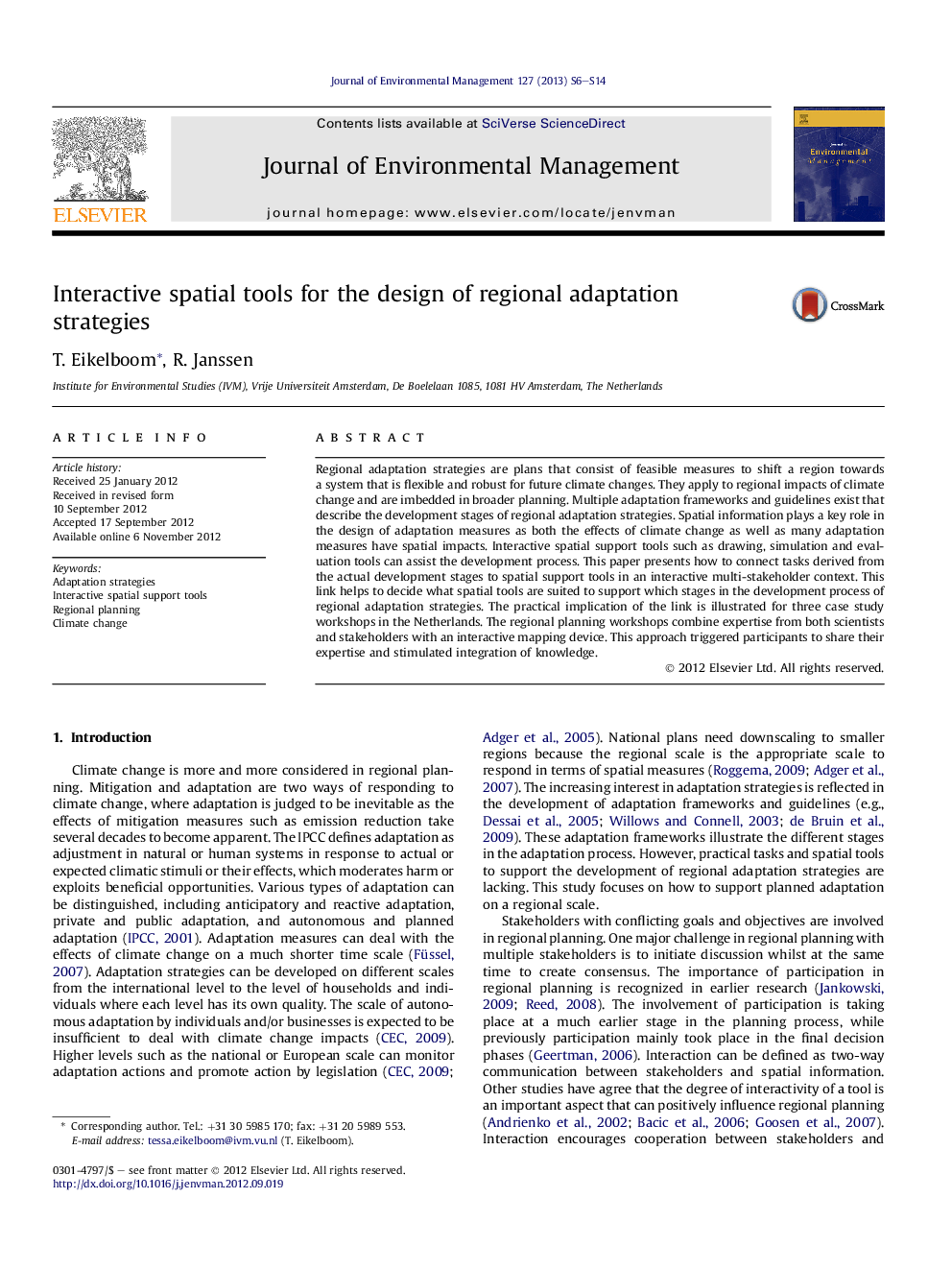| Article ID | Journal | Published Year | Pages | File Type |
|---|---|---|---|---|
| 1056119 | Journal of Environmental Management | 2013 | 9 Pages |
Regional adaptation strategies are plans that consist of feasible measures to shift a region towards a system that is flexible and robust for future climate changes. They apply to regional impacts of climate change and are imbedded in broader planning. Multiple adaptation frameworks and guidelines exist that describe the development stages of regional adaptation strategies. Spatial information plays a key role in the design of adaptation measures as both the effects of climate change as well as many adaptation measures have spatial impacts. Interactive spatial support tools such as drawing, simulation and evaluation tools can assist the development process. This paper presents how to connect tasks derived from the actual development stages to spatial support tools in an interactive multi-stakeholder context. This link helps to decide what spatial tools are suited to support which stages in the development process of regional adaptation strategies. The practical implication of the link is illustrated for three case study workshops in the Netherlands. The regional planning workshops combine expertise from both scientists and stakeholders with an interactive mapping device. This approach triggered participants to share their expertise and stimulated integration of knowledge.
► The actual development stages of regional adaptation strategies involve multiple tasks. ► Tasks can be supported by interactive spatial tools such as drawing, simulation and evaluation tools. ► Interactive spatial tools encourage the exchange of knowledge and support of stakeholders. ► Interactive spatial support tools must be tailored to the regional context.
